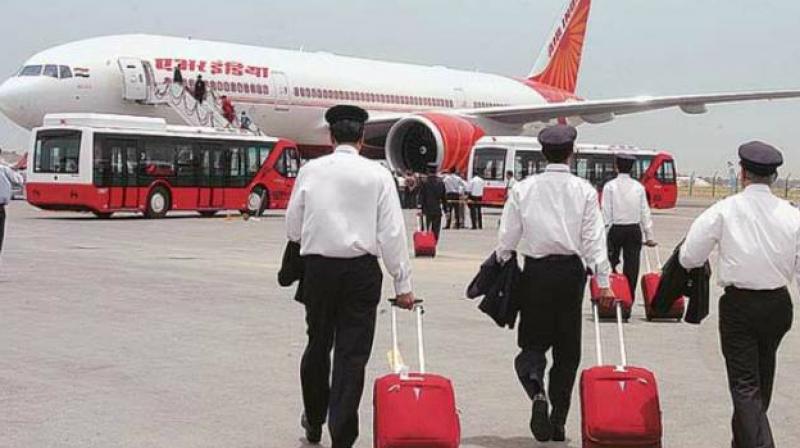DGCA defies protests, says senior pilots will have to serve 1-yr notice

New Delhi: Senior pilots will now have to serve a 12-month notice period before joining another airline, with aviation regulator DGCA on Wednesday coming out with new rules notwithstanding opposition from the pilots' community.
Currently, both senior and junior pilots are required to serve a six-month notice period.
With the new rules coming into effect immediately, Jet Airways' pilots union has voiced strong opposition to the DGCA decision while there were no immediate comments from airlines.
"It has been decided that pilots working in an air transport undertaking shall give a 'notice period' of at least one year in respect of commanders, and six months in respect of co-pilots to the employer indicating his intention to leave the job," the Directorate General of Civil Aviation (DGCA) said.
The notice period, however, may be reduced if the air transport undertaking provides a no-objection certificate to a pilot and accepts his resignation earlier than the period stipulated in the amended rules, as per the amended Civil Aviation Requirement (CAR).
Provision of this CAR would be subject to the outcome of writ petition pending before the Delhi High Court, the regulator said.
Sometime back, a petition was filed against the DGCA proposal to increase the notice period for pilots and it is pending before the court.
"During the notice period, neither the pilot shall refuse to undertake the flight duties assigned to him nor shall the employer deprive the pilot of his legitimate rights and privileges with respect to the assignment of his duties," the watchdog said.
Jet Airways pilots' union said it remains opposed to increasing the notice period.
"We seriously object to this new rule. We were opposed to it and we remain opposed to it. We will strongly protest this move along with all pilots from all airlines," National Aviators Guild (NAG) President D Balaraman told PTI.
NAG claims to have more than 1,000 Jet Airways pilots as its members.
While alleging that the DGCA is favouring private airlines, Balaraman said pilots would go on a mass protest.
Two pilots' unions at Air India -- ICPA and IPG -- did not offer any comment on the DGCA decision.
ICPA (Indian Commercial Pilots Association), a recognised union, has around 600 members, while IPG (Indian Pilots Guild) -- which is derecognised -- has about 900 members.
The DGCA had mooted the proposal in May after various domestic airlines, under the banner of Federation of Indian Airlines (FIA), urged it to increase the notice period for pilots to one year arguing that they put in a lot of time and effort on training them.
Various domestic pilots' bodies had, however, opposed the proposal on the ground that it is "exploitative" as longer notice period would mean airlines can be "vindictive" to those quitting.
When the draft CAR was put up for stakeholder consultations, majority of the respondents had opposed the proposal.
Out of the 281 comments on the draft CAR, as many as 278 were against the proposal, a senior government official had said last week.
A pilot's body had also written to the DGCA on the matter asking it to shun its plan on the grounds that "a notice period is an administrative and HR function" and, therefore, it was a matter between a pilot and his or her airline.
The Federation of Indian Pilots, which calls itself a body of like-minded pilots cutting across airlines, had said the existing notice period of six months was itself against international standards of three-month notice.
A global pilots' grouping, the International Federation of Air Line Pilots' Associations (IFALPA), too had written to the regulator saying the new rule could seriously impact aviation safety.
The Canada-based body represents more than 1,00,000 pilots across the world, as per its website.

